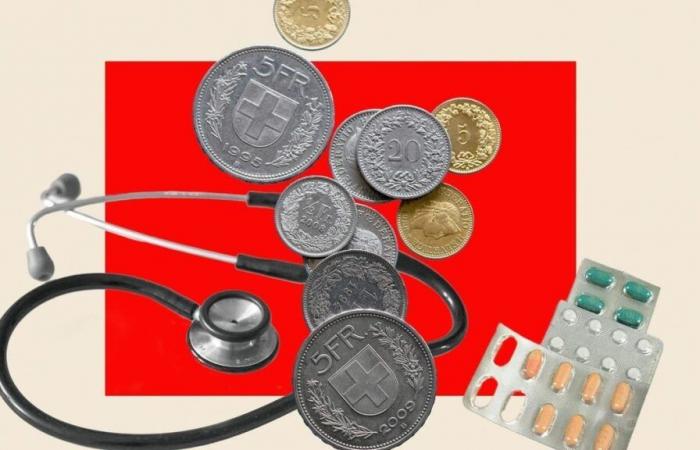Today, 80% of policyholders voluntarily give up the free choice of doctor in order to save on premiums. Asylum seekers and welfare recipients are not obliged to do so, an advantageous position compared to everyone else.
Doris Kleck / ch media
Officially, Switzerland values the free choice of doctor and it is politically impossible to restrict it. But unofficially, this principle has long been a thing of the past: around 80% of Swiss people are giving it up voluntarily and opting for an alternative insurance model in 2022. This is what emerges from statistics from the Federal Office of Public Health (FOPH). In 2012, the share of alternative forms of health insurance stood at 58%. Today, 77% of Swiss people voluntarily give up their free choice of doctor.
The objective? Benefit from a discount on their premiums. Among alternative systems, we find, for example, the family doctor model or that of telephone advice known as Telmed.
PLR national advisor Marcel Dobler assures us:
“Giving up free choice of doctor is the new standard model”
According to Marcel Dobler, policyholders can thus save on average between 15 and 25% on their premiums.
Save 200 to 400 million francs per year
However, there are population groups who do not pay their own health insurance premiums and who are insured by law according to the so-called standard model: they can therefore freely choose their doctor. These include recipients of supplementary benefits and social assistance as well as people in the asylum process (provided they are no longer in a federal asylum center). Marcel Dobler protests against the fact that these people are better off than 80% of the population.
How much do you pay in health insurance? Romands respond
Video: watson
He therefore tabled a motion during the winter session, requesting that people who do not pay their own health insurance premiums are forced to choose an alternative insurance model in the future. The intervention benefits from broad support with signatures from the UDC, the PLR, the Center and the Liberal Greens.
Marcel Dobler, however, wants to authorize justified exceptions. For example, when a doctor speaks the language of the insured and there is therefore no need for a translator. In the context of the execution of sentences or in federal asylum centers, it would also be possible to deviate from the new regulations, writes Marcel Dobler in his motion text.
The PLR national advisor estimates that his proposal would allow public authorities to save between 200 and 400 million francs per year.
Cantons have different regulations
This is probably an optimistic estimate. Indeed, some cantons have already taken measures by reducing their benefits for social assistance recipients.
Other cantons continue to rely on the standard model, but ask social assistance recipients who are affiliated to an expensive health insurance to switch to a cheaper one if possible. This is what the canton of Zurich's social assistance manual provides for, for example.
The rules are still different in the area of asylum and refugees. Questioned on this subject, the Conference of Cantonal Security Directors notes that the cantons are already choosing the most advantageous solutions today in terms of the health insurance model.
Translated and adapted by Chiara Lecca
More articles on the Swiss population
The government opposes the initiative for inclusion with a package of legislative measures. He will therefore submit to Parliament a counter-project that is “more concrete and quicker to implement”.
The rights of people with disabilities must be strengthened: new framework law on inclusion, extended assistance contribution, protection of equality in the private sector, recognition of sign language. The Federal Council opposes the inclusion initiative with a package of legislative measures.






